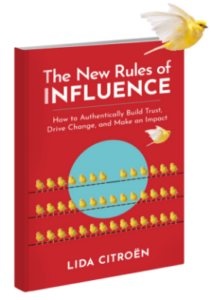In honor of Mother’s Day this week, let’s take a look at the opportunity of being a mom in the workforce. This blog looks at five assets that moms bring into a workforce and can even translate to leadership traits. (Note: this insight isn’t just for moms—dads, caretakers, and leaders overseeing working parents can leverage these traits, too.)

Today, moms in the workplace can serve as doctors, judges, organizational designers, CEOs, teachers, rocket scientists, copyrighters, accountants, hockey coaches and everything in between. For some of us, being a “Mom” was a deliberate, dreamed-upon choice. For others, it happened without planning. Either way, the role of mom at home brings significant brand assets to work. As a mother myself, I recognize that having someone on my team who also juggles the responsibilities, emotions, and service of parenting makes them highly valuable to me.
Brand Assets of “Mom”
1: Messes don’t scare us.
If your office sports a messy lunchroom, a disorganized, open-floor plan with cluttered communal spaces, not a problem. Your mom teammate won’t freak out. In fact, because she understands the value in less clutter leading to less injury, more harmony, and greater efficiency, she may well bring forward valid ways to streamline things.
Often, too, moms view chaos and disorder as signs of creativity. And some studies find having kids can make you more creative. The mom knows: to create genius – whether it’s art for the refrigerator or a new advertising campaign – the artist might have to get a little dirty.
2: We’re used to crying.
Your teammate who joined the company after raising tots will find your office quiet—and calm, no matter how volatile or reactionary the leaders and team. She often learned the vital lesson parenting brings: yelling or volatile emotions doesn’t produce desired results. Many moms have also learned when (and how) to stonewall and to not yield to irrational demands.
Your mom at work can expertly placate even the most pointed, cantankerous client and calm the colleague who feels dismissed in a company meeting. What’s important for managers to remember, however, is that while your mom employee can be nurturing and supportive it’s not fair to give them all the challenging clients and staff.
3: We can be brave when something tears at our heart.
Moms are not emotionless—quite the opposite. As moms, we’ve learned not to appear weak and to stand strong against adversity to protect (and inspire) our kids. Also, for moms who took time away from the corporate job to raise their kids, work can often feel social and sometimes adventurous. That transition back to the office can help them come out of their shell even more and feel even braver than they did before kids.
In the professional setting, we can’t misinterpret the Mom’s stoicism for lack of feelings. She is used to compartmentalizing her feelings, to create opportunities for others. Supporting the mom by encouraging her to find her voice is extremely important.
4: We naturally want to help.
Many describe moms as a natural helper and problem solver. We become the go-to on the team when someone’s struggling, needs a peer to listen, or needs a hand up. Moms tend to want to help a company recoup a lost client, find new business, or, drive initiatives to help a broader community.
At work, moms make great leaders, chairpersons, managers and team members. When a mom transitions from stay-at-home to a professional setting, encouraging her to continue to serve and empower others can make the transition smoother.
5: We can multi-task, focus, and become mega-efficient.
A mom transitioning back into the workforce has often grown accustomed to simultaneously changing a diaper, erasing crayon from the wall, and managing the household. She may be accustomed to being recognized but not thanked, to investing in the future of a child she loves, hoping every small decision leads to enormous impact and potential.
Going to the office and tasking on 1-2 items such as a client proposal, annual report, or a spreadsheet—with few people interrupting them—feels like a holiday. One mom recently confided, “We’re less likely to procrastinate by chit-chatting (because we enjoy being able to focus). Many moms delight in using their minds for something outside of parenthood, too.”
Taking care of kids, a house, and hectic family schedule is gargantuan. When these individuals come to the workforce, they are superhuman and capable of superhuman feats.
So, this Mother’s Day, let’s put aside any questions or doubts about what moms can do in the marketplace. Mother’s (and dads—and all caregivers) make an extraordinary commitment to our children, and this week, I lift you all up.


